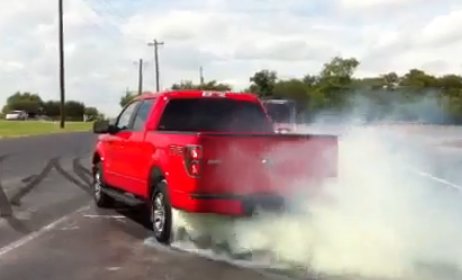Gas prices have fallen 40 percent in a year. Sales of SUVs and crossover utility vehicles are up, while hybrid sales are flat or falling.
And a midterm review is coming up, giving auto companies a chance to argue that the corporate average fuel economy rules that stretch out to 2025 need to be delayed, reduced, or altered.
So are the ambitious CAFE goals that will see window-sticker averages rise to about 42 mpg in 2025 likely to fall?
DON'T MISS: U.S. Will Meet Fuel-Economy Goals Despite Higher Truck, SUV Sales, EPA Says
According to commentator Drew Winter in a lengthy article in industry trade journal Ward's Auto, the consensus among a number of industry sectors is probably not.
Winter argues that the rest of the world isn't backing down from rules that severely reduce average carbon emissions from vehicles over the next decade.
![BMW ActiveE electric car in front of old gas pumps, Belvidere, NJ [photo: Tom Moloughney] BMW ActiveE electric car in front of old gas pumps, Belvidere, NJ [photo: Tom Moloughney]](https://images.hgmsites.net/lrg/bmw-activee-electric-car-in-front-of-old-gas-pumps-belvidere-nj-photo-tom-moloughney_100412541_l.jpg)
BMW ActiveE electric car in front of old gas pumps, Belvidere, NJ [photo: Tom Moloughney]
Europe and China, among others, have rules in place that are even tougher than those in the U.S.--and they're not likely to change.
The industry likes a clear path and goals, according to Bruce M. Belzowski, managing director-Automotive Futures at the University of Michigan’s Transportation Research Institute, as quoted in the Ward's piece.
ALSO SEE: Could Gasoline Below $3 A Gallon Doom Rising Gas-Mileage Rules?
Changing those goals halfway through would complicate makers' multiyear business plans--which increasingly center on building single engines and vehicle platforms globally, to take advantage of economies of scale.
Granted, carmakers are likely to cite the huge expense of new technologies at the midterm review.
But thus far, according to the EPA, carmakers have managed to meet the first four years of CAFE increases quite handily.

2011 Ford F-150 EcoBoost burnout
They've done so, moreover, with fewer hybrids, plug-in electric cars, and other pricey new types of powertrains than were anticipated several years ago.
Instead, they've used a combination of smaller engines, turbocharging, transmissions with more gears, lighter-weight components, and a host of other improvements to boost gas mileage in cars that are otherwise more conventionally engineered than expected.
MORE: Auto Industry Doing Fine In Meeting Gas-Mileage Goals, It Turns Out
Parts supplier Continental, for one, doesn't think the goal will change--because automakers are already "so heavily invested we feel the point of no return already is there," in the words of Samir Salman, the company's CEO for the NAFTA Region.
So while we may expect a great deal of positioning and complaining by automakers during the upcoming review, it may be that in fact the CAFE rules put into place in the early years of the first Obama administration are now a done deal.
Which means that all those SUVs and other light trucks that U.S. buyers will still likely be driving in 2025 will be considerably more fuel-efficient than today.
_______________________________________________













